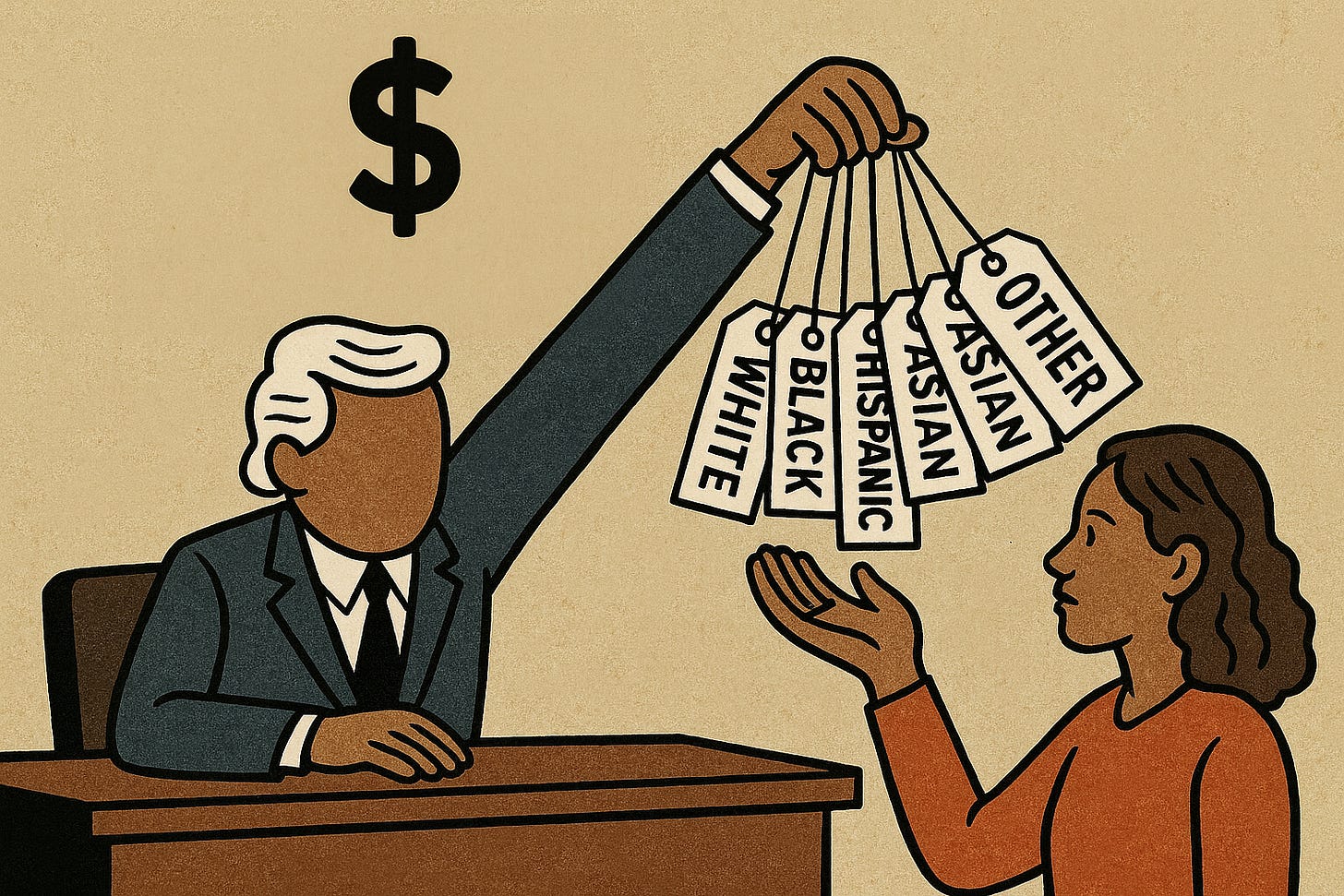The State’s Cowardice In Outsourcing Racial Classification
At its core, this is a moral issue. A government that truly believed in liberty and dignity would abandon race classification altogether...
Cowardice has become a defining trait of South Africa’s government. Nowhere is it clearer than in the ANC government’s handling of racial classification. The ANC wish to re-impose racial categories, yet they shrink from the odium of enforcing them directly; instead, they outsource the task to business. Under the latest Black Economic Empowerment (BEE) requirements, firms are compelled to pressure their employees into declaring their “race”, so that bureaucrats in Pretoria may compile their BEE scorecards. In this way, government maintains its racial arithmetic while pretending to keep its hands clean.
Unlike the apartheid regime, which enforced race classification openly through inspectors and boards under the Population Registration Act, today’s government hides behind private companies. It forces employers to act as interrogators of their own staff, to record racial identity on official forms, and to hand the data back to the state. The classification remains, but the humiliation is inflicted in the workplace rather than by a government clerk.
Apartheid could not have been implemented without the classification of people by race. The Population Registration Act was the law that made every other apartheid law enforceable. It was against this law that opposition forces directed their sharpest fire. The ANC, the UDF, the Black Sash, the Progressive Federal Party — all demanded its abolition. Even PAC leader Robert Sobukwe said: “There is only one race to which we all belong, and that is the human race.” To see today’s ANC, once a loud opponent of race classification, now coercing companies to force their employees to classify themselves by race is rank hypocrisy of the highest order.
This pattern of cowardice is not new. Whenever the state wishes to impose controls that it dares not or cannot enforce directly, it deputises private actors. Under the Financial Intelligence Centre Act and the Regulation of Interception of Communications Act , banks, estate agents, and telecommunications firms were forced into service as informants. They became the agents who collect, monitor, and report on their customers, not for commercial reasons but to satisfy political ends. By such delegation, the state evades both the cost and the blame, while every citizen is subjected to intrusive scrutiny.
The practice corrodes trust. Citizens no longer deal with companies as free customers; they confront them as extensions of the state’s surveillance or racial bureaucracy. Firms, for their part, are stripped of independence and dignity. They must perform acts that contradict the very basis of free exchange: voluntary agreement between equals. An employer compelled to classify his staff by race, or to interrogate his clients’ private affairs, is no longer a trader but a reluctant policeman.
At its core, this is a moral issue. A government that truly believed in liberty and dignity would abandon race classification altogether, as it once promised when repealing the Population Registration Act. It would end the practice of conscripting business into its schemes of control. Instead, the ANC government conceals its hand by coercing companies to enforce its policies, even as those policies weigh heavily on the companies themselves.
South Africa cannot prosper while government clings to this habit: racial classification must be abolished in fact as well as in name, and business freed from the burden of acting as the state’s proxy jailer, tax collector, or inquisitor.
Eustace Davie is President of the Free Market Foundation and author of Jobs for the Jobless and Unchain the Child.





Eloquently put.
Dia ANC is voorwaar walglik! Apartheid was ook, maar ten minste het die destydse regering die moed van hul oortuigings gehad om nie agter ander instansies weg te kruip sodat hulle die rasseklassifikasie namens die regering moes doen nie. En WRAGTIG dink die ANC tog dat ons nie bewus is van die feit dat hulle enige tyd net so rassisies is as wat die ou NP was nie. Hulle HUIGEL net daaroor, deur voor te gee dat hulle nie walglike rassiste is nie, want hulle kontrakteer hul rassime uit na ander toe sodat hulle self onskuldig te kan pleit...👎🏿👎🏿👎🏿
"To see today’s ANC, once a loud opponent of race classification, now coercing companies to force their employees to classify themselves by race is rank hypocrisy of the highest order."